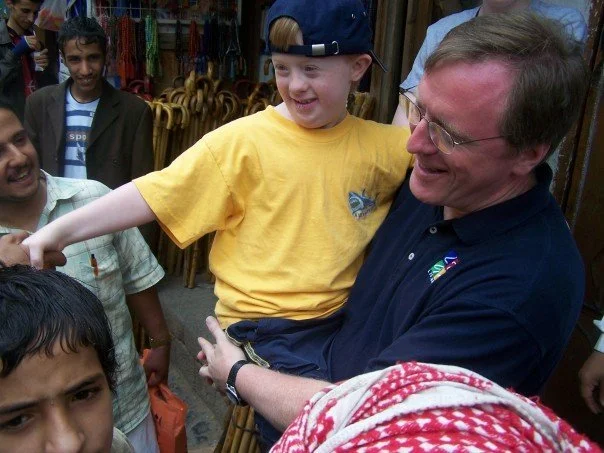
Yemeni stories of escape and embracing new realities.
Real Stories, Unveiled
The Story of Luke and Arafat
Luke—who has Down Syndrome—unexpectedly brought healing to a grieving family who saw him as a sign from God.
Family between two worlds
Read the story of Hindia and Azhar, Yemeni mothers from Hodeida, now refugees in Amman, Jordan.
The story of an all-girl escape
Read the story of Hanaa and her daughters, Yemeni refugees who fled war in Aden.
Not for me, but for my children
A Yemeni father in Amman sacrificed everything so his daughters could receive an education and a hopeful future.
Through sickness and health
A Yemeni refugee in Jordan navigates illness, displacement, and resilience with her family while striving for peace and a better future.
Yemeni women facing the past and future
Struggling with displacement, loss, and hope, Mariam and Rania fight for education and a return home.
A mother's sacrifice
A Yemeni mother sacrifices her health and comfort to support her children’s education.
No choice but escape
From loss and prejudice to dreams of becoming a teacher, Omnia’s journey shows strength and resilience.
Facing death, searching for life
A Yemeni refugee father in Egypt caring for his children with spinal deformities while struggling to find work, treatment, and hope.
Alone, stuck in a strange land
A Yemeni mother of six who fled war and loss, now struggling as a refugee in Jordan to find work, provide food, and secure education for her children.
Limited opportunities, unlimited goals
A Yemeni refugee imprisoned for refusing to fight in the war, now in Egypt facing hardship, disability, and dreaming of resettlement in the U.S.
A family's escape from war to prison
A Yemeni refugee family who fled Aden through Somalia to Jordan dreams of safety, dignity, and opportunity.
A father’s fight for his family's future
Read the story of a Yemeni refugee father persecuted by the Houthis, now in Jordan fighting for his family’s survival.
The fire of a single mother
A Yemeni single mother in Egypt raises her son with Erb’s Palsy while facing threats, trauma, and isolation.
How a single label dictates one’s life
The story of a divorced Yemeni asylum seeker in Egypt struggling to provide for her children while her daughter dreams of becoming a doctor.














